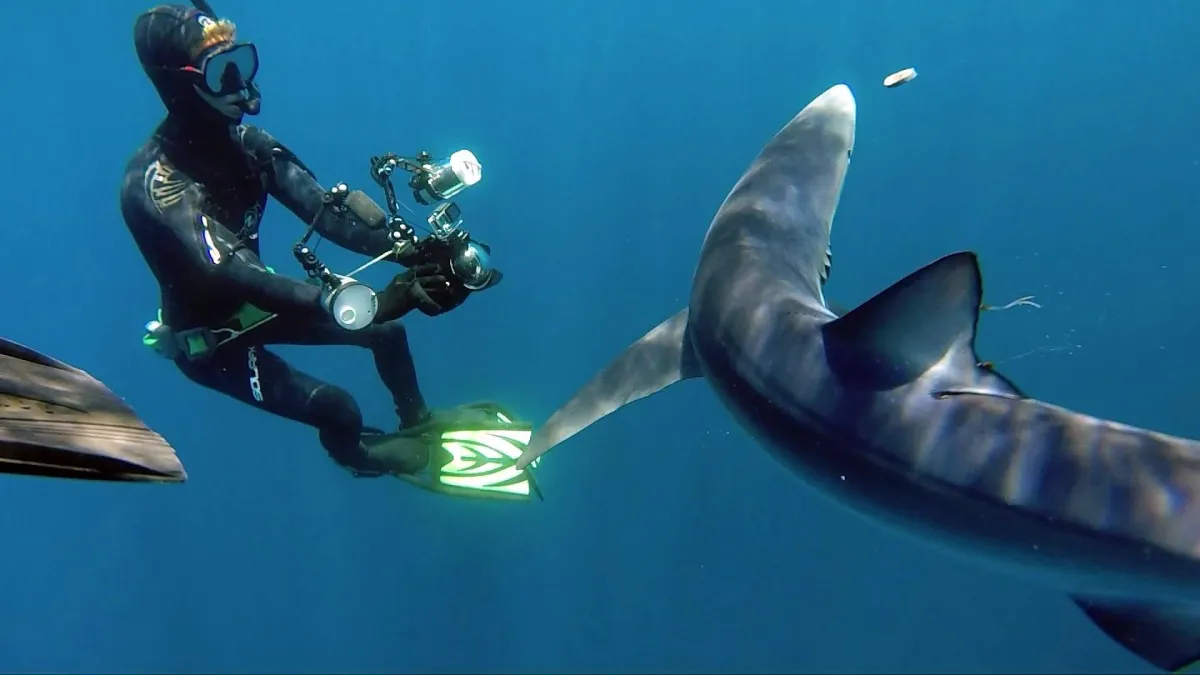Shark Monitoring FAQ
— What is the difference between the two of them?
A: The Sevengill shark tracking program uses a pattern recognition algorithm which allows us to track individuals within a species, from year to year and we use a specialized database design by Jason Holmberg, called ‘Wildbook‘ to do the analysis.
The Sharks of San Diego program uses a tool provided by National Geographic, called ‘Fieldscope,’ which allows us to monitor which species of sharks are frequenting the San Diego area. For instance, if a diver spots a Thresher shark or a Great White shark off La Jolla and logs it into the database along with a a photograph, we have a data point in time that indicates when that particular species was present off the coast of San Diego.
Q: Is there any special equipment or preparation that someone might need to contribute?
A: For the smaller species of shark, such as the Leopard Shark or Horn Shark for instance, the only real equipment a person would need would be a decent quality camera. No special training is needed, because these species of sharks are usually viewable in very shallow water (15 feet or less) while snorkeling.
Obviously, for the larger species, such as the Sevengill shark, scuba gear and a bit more experience around larger sharks is required and we always emphasize safety above all else. No one should ever put themselves or others in danger to ‘get the shot.’ Sharks are obviously wild animals and must be treated with respect and caution–and common sense.
Q: What do you plan to do with the data once you get it?
A: For these Sevengill shark monitoring program, we are still in the initial stages of data analysis. Once we have a better idea of what the data tells us, down the road, under the supervision of our PI (Principle Investigator), we may decide to publish the results in an open access scientific journal.
With the Fieldscope program, again, we are only in the initial stages of data collection and we would have to see where it takes us before we decide what to do with it, in conjunction with National Geographic policies.
Common Sense Around Sharks: always bear in mind that sharks are wild animals and should be treated with common sense and respect — never endanger your own safety to collect data or take a photograph. The ocean will always be there tomorrow.
CONTACT
Ocean Sanctuaries, Inc.
1981 Caminito el Canario
La Jolla, CA 92037 USA
+1.858.633.7305
NPO INFO
EIN 46-5209246
501(c)(3) Nonprofit
C Environmental Quality Protection, Beautification
C30 (Natural Resource Conservation and Protection)
BOARD OF DIRECTORS
© 2024 Ocean Sanctuaries, Inc. | Privacy Policy | Terms of Service

